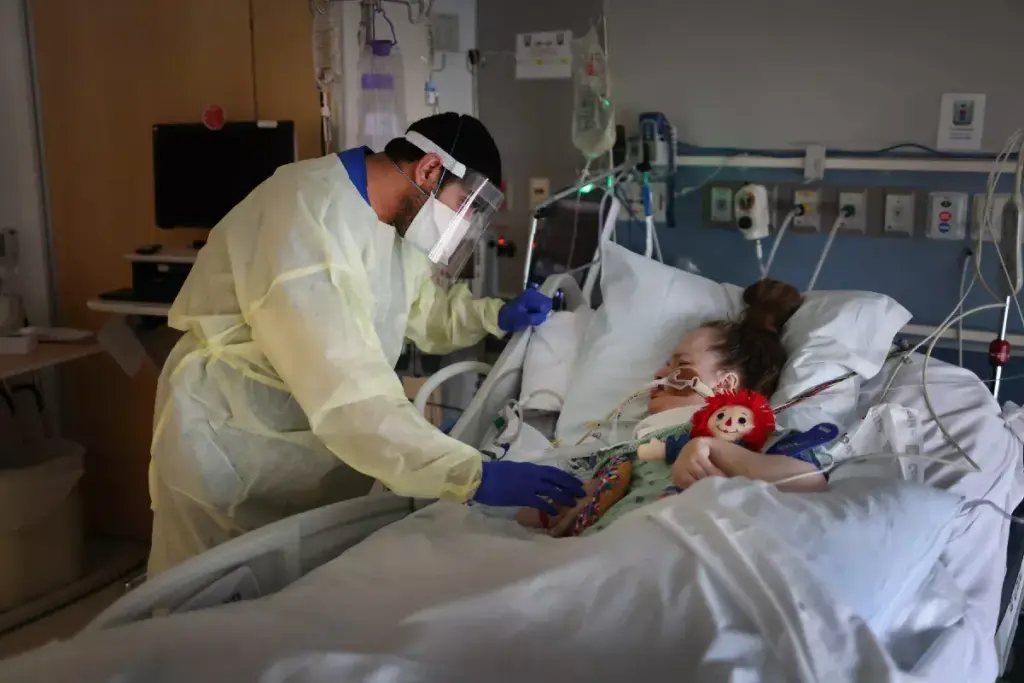
In the complex world of cancer treatments, complementary therapies are becoming more important. At Liv Hospital, we offer our patients innovative stem cell therapies. These can be used alongside traditional treatments.
Studies show that alternative cancer treatments like metabolic therapy and repurposed drugs can help. We’re committed to looking into these options. This way, our patients get care that meets their specific needs.
Key Takeaways
- Exploring unconventional cancer treatment options
- Evidence-based complementary therapies
- Innovative stem cell therapies for cancer care
- Personalized patient care at Liv Hospital
- Improving patient outcomes through alternative treatments
The Current State of Cancer Treatments Alternative

The world of cancer treatment is changing fast. Now, more people are looking for alternative ways to fight cancer. This shift is happening because patients and doctors want more holistic care options.
The Growing Interest in Complementary Approaches
Research shows that many patients want to use alternative treatments for cancer along with traditional ones.
“The integration of alternative therapies into cancer care is becoming more mainstream,”says a leading oncologist. “As we move forward, it’s vital to grasp how these therapies can help improve patient results.”
Today, we see a big change in how we treat cancer. Patients are looking for alternative cancer therapies to use with traditional treatments.
Balancing Conventional and Alternative Methods
While more people are interested in alternative therapies, it’s key to mix them with traditional methods.
Combining them can lead to better patient results and a better life quality. By knowing the good and bad of both, we can offer better care.
Understanding the Role of Alternative Cancer Therapies

Cancer patients look into many treatment options. This includes alternative cancer therapies. These treatments can help or be different from standard care.
Defining Alternative vs. Complementary Treatments
It’s key to know the difference between alternative and complementary treatments. Complementary therapies add to standard treatments to improve comfort and well-being. Examples are meditation, yoga, and acupuncture. On the other hand, alternative therapies replace standard treatments. Knowing this helps in making care choices.
We stress that alternative therapies should be used with caution. They should be under the watch of healthcare professionals.
The Importance of Evidence-Based Approaches
Looking into alternative cancer therapies, it’s important to check the evidence. Research shows different levels of proof for these therapies. Patients should talk to their doctors about the benefits and risks.
The table below shows the main differences between alternative and complementary therapies:
| Therapy Type | Used With Conventional Treatment | Used Instead of Conventional Treatment |
|---|---|---|
| Complementary | Yes | No |
| Alternative | No | Yes |
Understanding alternative cancer therapies and the need for evidence helps patients make better care choices.
Metabolic Therapy: Targeting Cancer Cell Metabolism
Metabolic therapy is a new way to fight cancer. It focuses on how cancer cells use energy. Cancer cells use energy differently than healthy cells, and this therapy aims to use that to kill them.
Mechanisms of Metabolic Therapy
This therapy changes how cancer cells get energy. It limits glucose, which cancer cells need a lot of. This is because cancer cells use energy differently, known as the Warburg effect.
It also uses special nutrients and vitamins. These can block important steps in how cancer cells grow. This makes it harder for them to multiply.
Research and Clinical Evidence
Studies on metabolic therapy are showing good results. They show that cutting off glucose can slow down tumors. They also make other cancer treatments work better.
Some studies suggest it can help patients live longer and feel better. For example, a metabolic therapy example is a ketogenic diet. It has helped some cancer patients live longer and feel better.
Potential Applications with Conventional Treatment
Metabolic therapy can work with other cancer treatments. It targets the special needs of cancer cells. This makes other treatments more effective and can reduce side effects.
More and more people are looking into using metabolic therapy with other treatments. As we learn more, it could become a big part of fighting cancer.
Ketogenic Diets as Alternative Cancer Treatment
Ketogenic diets are high in fat and low in carbs. They are being studied for their anti-cancer effects. This diet is not new; it’s been used for epilepsy. But now, it’s getting attention in cancer research.
The Science Behind Ketogenic Approaches
This diet cuts down on carbs, lowering blood sugar. It makes cells use fat for energy, creating ketone bodies. Cancer cells, which need glucose, might struggle with this change.
Potential Anti-Tumor Effects: Studies show ketogenic diets might fight cancer. They do this by cutting off glucose to cancer cells and changing the tumor environment.
Implementation and Practical Considerations
Starting a ketogenic diet needs careful planning. It’s important to make sure you get all the nutrients you need. Side effects can happen, so it’s best to talk to a doctor before starting.
- Monitoring nutritional status and adjusting the diet as necessary
- Ensuring adequate hydration and electrolyte balance
- Being aware of possible interactions with other treatments
Clinical Studies and Patient Outcomes
Many studies are looking into ketogenic diets for cancer. The early results are encouraging, but we need more research. This will help us understand its full benefits and drawbacks.
Current Research: Studies are ongoing to see how ketogenic diets affect different cancers. This includes glioblastoma and pancreatic cancer.
The ketogenic diet is a promising area in cancer research. By learning more about its benefits and challenges, we can help patients make better choices for their treatment.
Repurposed Medications: Metformin and Beyond
Repurposed medications are a big deal in cancer research. They’re old drugs being tested for new uses. This could speed up finding new cancer treatments.
Metformin and Its Anti-Cancer Properties
Metformin is a diabetes drug that might fight cancer too. Studies show it could slow down cancer cell growth. A Nature Reviews Cancer study backs up its cancer-fighting role.
Metformin might work by:
- Stopping cancer cells from growing
- Helping cells die when they should
- Lowering insulin levels
Other Promising Repurposed Medications
Other drugs are also being looked at for cancer. These include:
| Medication | Original Use | Potential Anti-Cancer Effects |
|---|---|---|
| Aspirin | Pain relief, anti-inflammatory | Lowering cancer risk, better survival |
| Statins | Cholesterol lowering | Slowing cancer cell growth, better treatment results |
| Beta-blockers | Cardiovascular conditions | Less cancer growth due to stress |
These drugs might help fight cancer when used with other treatments.
Integration with Standard Treatment Protocols
Using repurposed drugs with usual cancer treatments is exciting. It could make treatments better and help patients live longer. For example, a clinical trial might test metformin with chemotherapy.
“Repurposing drugs for cancer is a promising way to help patients. It uses drugs we already know are safe. This could lead to new ways to treat cancer.”
As we learn more, we might see new ways to fight cancer. This could bring hope to those fighting the disease.
Mind-Body Practices for Cancer Support
Mind-body practices are becoming more important in cancer care. They help patients manage their condition better. These practices focus on the mind, body, and spirit connection, aiming to improve overall well-being and treatment outcomes.
Meditation and Stress Reduction Techniques
Meditation and stress reduction techniques are being used more in cancer care. They help patients deal with stress, anxiety, and pain. These practices can improve patients’ quality of life and meet their individual needs.
Studies show that regular meditation can reduce depression and anxiety in cancer patients. It also helps improve sleep quality, which is often affected during treatment.
Yoga and Movement Therapies
Yoga and movement therapies are gaining recognition in cancer care. These exercises improve flexibility, balance, and strength. They also reduce stress and promote relaxation.
Research indicates that yoga can be safely practiced by cancer patients during treatment. It can improve physical function and overall well-being. Yoga’s adaptability makes it accessible to patients with different mobility and health levels.
Psychological Approaches to Cancer Management
Psychological approaches, like cognitive-behavioral therapy (CBT) and counseling, are key in supporting cancer patients. These therapies help patients deal with the emotional and psychological challenges of cancer.
By addressing fear, anxiety, and depression, psychological support can help patients manage their condition better. It improves their quality of life. These approaches are tailored to meet individual needs, providing the necessary tools and support for patients’ cancer journey.
Immunomodulatory Supplements as Alternative for Cancer Treatment
Immunomodulatory supplements are being looked at as a new way to fight cancer. They aim to boost the body’s immune system to fight cancer cells better. This could lead to better treatment results.
Mushroom Extracts and Immune Function
Mushroom extracts, like Reishi, Shiitake, and Turkey Tail, are being studied for their immune-boosting effects. These mushrooms have compounds like beta-glucans that can activate the immune system.
Key Benefits:
- Enhanced immune response against cancer cells
- Potential to improve survival rates
- Complementary to conventional cancer treatments
Herbal Supplements with Anti-Cancer Properties
Some herbal supplements are being studied for their cancer-fighting properties. For example, Turmeric has curcumin, which can slow down cancer cell growth. Ginger and Green Tea also show promise in fighting cancer.
| Herbal Supplement | Potential Anti-Cancer Effect |
|---|---|
| Turmeric (Curcumin) | Inhibits cancer cell growth |
| Ginger | Anti-inflammatory properties |
| Green Tea (Catechins) | Antioxidant effects |
Safety Considerations and Possible Interactions
Immunomodulatory supplements may offer benefits, but safety and interactions with other treatments are key. Always talk to a healthcare provider before adding supplements to your treatment plan.
Important Safety Considerations:
- Potential interactions with chemotherapy or radiation therapy
- Risk of allergic reactions or side effects
- Quality control and purity of supplements
Understanding the role of immunomodulatory supplements in cancer treatment helps patients make informed choices. It’s vital to use these supplements alongside traditional treatments, with the guidance of healthcare professionals.
Hyperthermia Treatments for Cancer
Hyperthermia treatments are becoming a new way to fight cancer. They use heat to harm or kill cancer cells. This is often done with other treatments like chemo or radiation.
Local and Whole-Body Hyperthermia
There are different types of hyperthermia. Local hyperthermia focuses on a specific area, like a tumor. It uses special methods to heat just that area, without harming others nearby. Whole-body hyperthermia heats the whole body. It’s used for cancers that have spread all over.
Electromagnetic and Frequency-Based Approaches
Hyperthermia uses technologies like electromagnetic waves and frequencies. These help heat the right areas without hurting the healthy ones around them.
Current Research and Clinical Applications
Scientists are always studying hyperthermia to see how well it works. Many trials are looking at its safety and effectiveness in different cancers. The results show it can make other treatments work better, helping patients more.
More and more research supports using hyperthermia alongside other treatments. As studies keep going, we’ll learn more about how to use it. This could lead to even more ways to help people with cancer.
Oxygen and Ozone Therapies as Cancer Alternative Treatments
Oxygen and ozone therapies are getting more attention for treating cancer. They might help fight tumors and improve patient results. It’s key to know how these treatments work and their benefits.
Mechanisms of Action and Theoretical Basis
Oxygen and ozone therapies use the body’s natural defense against oxidative stress. Ozone, with three oxygen atoms, can create reactive oxygen species (ROS). These ROS target cancer cells.
Ozone therapy boosts the immune system to fight cancer better. It makes more cytokines and activates immune cells. This can slow down tumor growth.
Treatment Protocols and Administration Methods
These therapies can be given in different ways, like through veins, rectal insufflation, or on the skin. The method depends on the cancer type, stage, and the patient’s health.
Treatment plans often include several ozone therapy sessions. The number and length of sessions vary based on the patient. It’s important to talk to a healthcare professional to find the best treatment.
| Therapy Type | Administration Method | Potential Benefits |
|---|---|---|
| Ozone Therapy | Intravenous Infusion | Enhanced immune response, reduced tumor size |
| Oxygen Therapy | Hyperbaric Oxygen Therapy | Increased oxygenation, improved wound healing |
Evidence and Safety Considerations
Oxygen and ozone therapies seem promising. But, we must look at the evidence and safety. Studies show they can help manage cancer symptoms and improve life quality.
Yet, like any treatment, there are risks and things to avoid. Patients should talk to their doctors about the good and bad sides. This helps make the right choice for their care.
Navigating Alternative Cancer Options: Making Informed Decisions
Cancer patients are now looking at alternative therapies more often. It’s key to understand these options well. As cancer treatment changes, knowing the different alternatives is vital.
Discussing Options with Healthcare Providers
Talking openly with doctors is a big step in exploring alternative cancer options. Patients should talk about their interest in these therapies with their doctors. Doctors can share the good and bad sides of these options.
Research shows that patients who help decide their treatment do better. Talking about alternative options with doctors helps make choices that fit the overall treatment plan.
Evaluating Research and Evidence Quality
It’s important to check the research behind alternative cancer therapies. Not all have solid scientific backing. Some might rely on stories or early studies.
Look for therapies studied in clinical trials and published in trusted journals. This helps patients and doctors make better choices about adding alternative therapies to treatment plans.
Integrating Conventional and Alternative Approaches
Many find the best results by mixing traditional cancer treatments with alternative therapies. This mix can help with symptoms, improve life quality, and even boost treatment success.
Working with a healthcare team, patients can create a plan that combines the best of both worlds. This might include standard treatments like chemo or radiation with alternative methods like mind-body practices or nutrition.
Potential Risks and Limitations of Alternative Cancer Therapies
Alternative cancer therapies can offer hope, but it’s important to know their risks and limits. Patients should be aware of these to make informed choices about their care.
Recognizing Red Flags and Unsubstantiated Claims
One big risk with alternative cancer therapies is unsubstantiated claims. Some treatments promise too much, which can be misleading. Be careful of therapies that:
- Claim to cure all cancers
- Have no scientific proof
- Use testimonials instead of data
- Keep their ingredients or methods secret
“The line between innovative therapies and unproven treatments can be blurred, making it critical for patients to consult with healthcare professionals before starting any alternative treatment.”
Understanding Contraindications and Interactions
Alternative cancer therapies can sometimes interact with standard treatments or have risks. For example, some herbal supplements can affect chemotherapy or radiation. Always talk to your healthcare provider before using alternative therapies to avoid bad interactions.
The National Cancer Institute says, “some dietary supplements can affect how chemotherapy drugs work, leading to reduced effectiveness or increased toxicity.”
The Importance of Continued Conventional Care
Even when trying alternative cancer therapies, don’t stop conventional care. Treatments like surgery, chemotherapy, and radiation are proven to work. Work with your healthcare provider to safely add alternative therapies to your plan, making sure you get the care you need.
“Integrative medicine is not about replacing conventional treatments with alternative ones, but about using them complementarily to enhance patient outcomes and quality of life.”
Knowing the risks and limits of alternative cancer therapies helps patients make better choices. This way, they can get the most effective and safe treatment possible.
Conclusion: The Future of Integrative Cancer Care
The future of cancer care is about mixing traditional and alternative methods. Studies show this mix can make patients feel better and live better lives.
Options like metabolic therapy, ketogenic diets, and mind-body practices are promising. They can be part of a complete care plan when used with standard treatments. This approach helps tailor care to each patient’s needs.
We need more research and education to make integrative cancer care a reality. By working together, healthcare teams can offer patients the best care. This care combines the best of traditional and alternative treatments.
What are alternative cancer treatments?
Alternative cancer treatments are options used instead of or along with traditional treatments. These include metabolic therapy, ketogenic diets, and mind-body practices.
How does metabolic therapy work as an alternative cancer treatment?
Metabolic therapy targets cancer cells’ metabolic processes. It aims to stop their energy production and growth. This is because cancer cells have different metabolic profiles than healthy cells.
What is the role of ketogenic diets in cancer treatment?
Ketogenic diets are being studied as alternative treatments. They drastically cut down carbs and increase fats. This is to starve cancer cells of glucose, their main energy source.
Can repurposed medications like metformin be used as alternative cancer treatments?
Yes, medications like metformin are being looked at for their anti-cancer effects. Metformin, used for type 2 diabetes, may help stop cancer cell growth and improve treatment results.
How do mind-body practices support cancer patients?
Mind-body practices like meditation and yoga help cancer patients manage stress and symptoms. They improve overall well-being and may lead to better treatment outcomes.
Are immunomodulatory supplements effective as alternative cancer treatments?
Supplements like mushroom extracts are being studied for their anti-cancer properties. Some studies show benefits, but more research is needed, and safety is a big concern.
What are hyperthermia treatments, and how are they used in cancer care?
Hyperthermia treatments use heat to fight cancer. They can damage cancer cells and make traditional treatments more effective. This improves patient outcomes.
Can oxygen and ozone therapies be considered alternative cancer treatments?
Oxygen and ozone therapies are being researched as alternative treatments. They aim to slow cancer cell growth, boost the immune system, and enhance health.
How can patients navigate alternative cancer options and make informed decisions?
Patients should talk to their doctors about alternative treatments. They should look at the research and weigh the benefits and risks. Getting advice from healthcare professionals is key.
What are the possible risks and limitations of alternative cancer therapies?
Alternative therapies can have risks, like unproven claims and interactions with traditional treatments. Patients need to know these risks and stick with their doctors’ advice.
What is the future of integrative cancer care?
Integrative cancer care is looking bright, with more focus on combining traditional and alternative methods. More research and teamwork among healthcare professionals will shape the future of cancer treatment.
What is alternative therapy for cancer?
Alternative therapy for cancer means using treatments other than the usual ones. This includes metabolic therapy, dietary changes, and mind-body practices.
What are some examples of unconventional cancer cures?
Unconventional cancer cures include unique treatments like ketogenic diets and hyperthermia. Other examples are oxygen and ozone therapies, which are not standard cancer treatments.
References
- Yale School of Medicine. Yale Scientists Develop Precision Medicine Approach to Metabolic Therapy for Breast Cancer. https://medicine.yale.edu/news-article/yale-scientists-develop-precision-medicine-approach-to-metabolic-therapy-for-breast-cancer/
- National Center for Biotechnology Information (NCBI). https://pmc.ncbi.nlm.nih.gov/articles/PMC9793001/
- HealNavigator. Metabolic Therapy Cancer Treatment. https://healnavigator.com/blog/metabolic-therapy-cancer-treatment/
- National Center for Biotechnology Information (NCBI). https://pmc.ncbi.nlm.nih.gov/articles/PMC8832959/
- Cancer Research UK. Hacking cancer cell metabolism. https://news.cancerresearchuk.org/2023/01/30/starving-cancer-into-submission/










